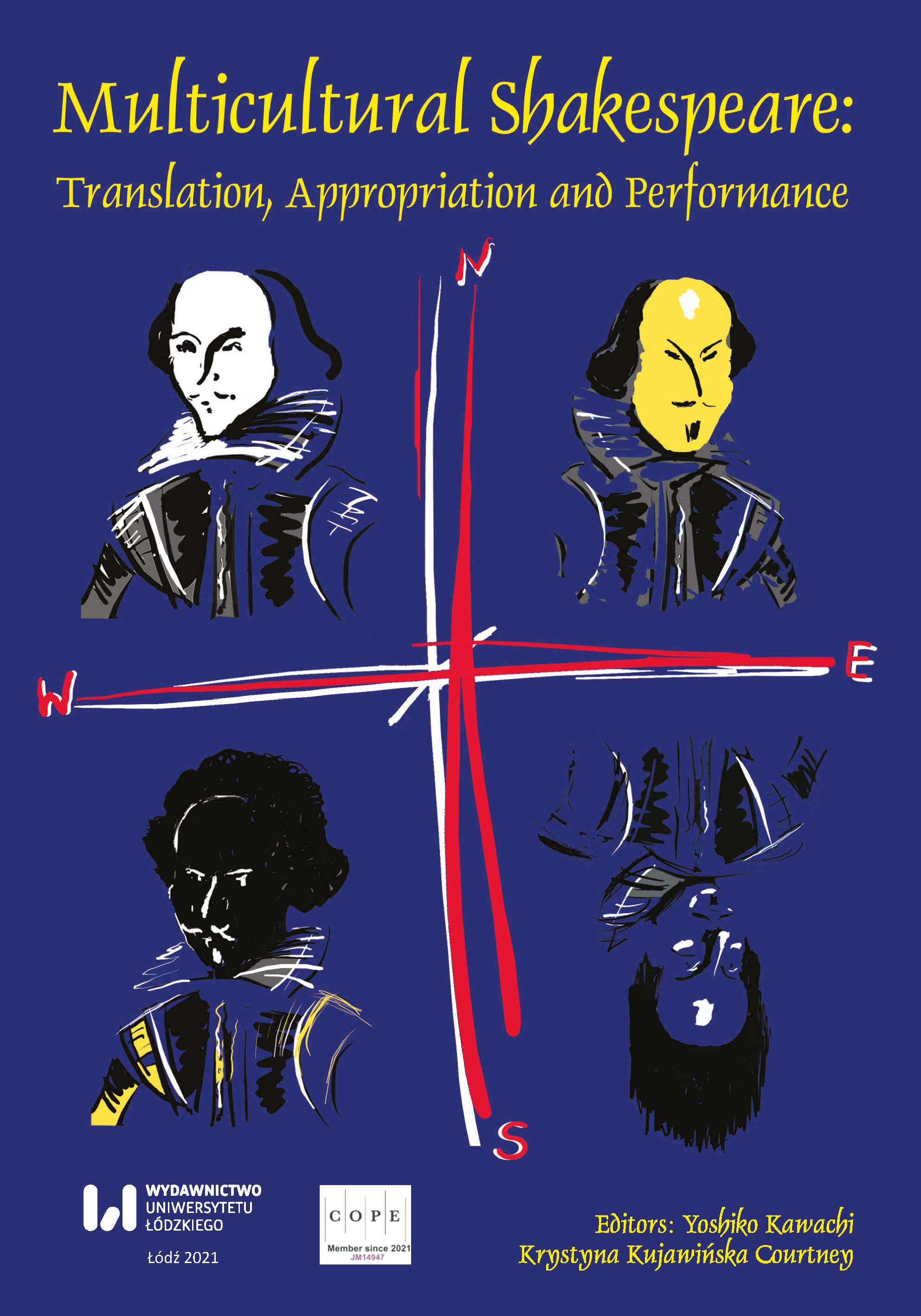The Shakespeare Brand in Contemporary “Fair Verona”
DOI:
https://doi.org/10.18778/2083-8530.23.07Keywords:
Branding Shakespeare, Romeo and Juliet, Letters to Juliet, VeronaAbstract
The idea that Shakespeare belongs to the world is certainly not new. From the beginning of his afterlife as a dramatist two issues have been consistently put forward by his contemporaries: 1) his art’s universality—for Ben Jonson, Shakespeare was the one “To whom all scenes of Europe homage owe”—and 2) his ability in appropriating foreign exotic environments which have notoriously characterised most of his plays. The value of such claims, which seem to be so present to us, helped to identify Shakespeare as an ‘universal’ icon whose work transcends time and space, gradually fostering, in and outside Britain, the so-called ‘Bardification of culture’, a phenomenon which persists, even more powerfully, nowadays. This study examines the different ways through which Verona has contributed in popularizing and elaborating the myth of Romeo and Juliet into a variety of formats suitable for the tourism market. By taking into account the so-called ‘Shakespace’ phenomenon, it focuses on what I have labelled as the ‘R&J-influenced spaces’ which account for a number of civic, cultural, and narrative spaces generated by and constructed upon the myth of the Veronese lovers.
Downloads
References
Bandello, Matteo. Novelle. Ed. Delmo, Maestri. 4 vols. Alessandria: Edizioni dell’Orso, 1992-1996.
Google Scholar
Baudrillard, Jean. “Simulacra and Simulation.” In Selected Writings. Ed. Mark Poster. Stanford: Stanford University Press, 1988: 166-184.
Google Scholar
Berger Brigitte, Berger Peter and Hansfried Kellner, eds. The Homeless Mind: Modernization and Consciousness. New York: Random House, 1973.
Google Scholar
Berger, Peter. “Modern Identity: Crisis and Continuity.” In The Cultural Drama: Modern Identities and Social Ferment. Ed. Wilton S. Dillon. Washington, DC: Smithsonian Institution Press, 1974: 159-181.
Google Scholar
Bloom, Harold. William Shakespeare’s Romeo and Juliet. New York: Infobase Publishing, 2010.
Google Scholar
Burke, Kenneth. “Literature as Equipment for Living.” Direction 1.4 (1938): 10-13.
Google Scholar
Calbi, Maurizio. “He speaks … or rather … He tweets.” In Spectral Shakespeares: Media Adaptations in the Twenty-First Century. Basingstoke: Palgrave Macmillan, 2013. 137-160.
Google Scholar
DOI: https://doi.org/10.1057/9781137063762_8
Cerdá Juan F., Dirk Delabastita and Keith Gregor eds. Romeo and Juliet in European Culture. Amsterdam: John Benjamins, 2017.
Google Scholar
DOI: https://doi.org/10.1075/sec.1
Friedman Lise and Ceil Friedman, Letters to Juliet: Celebrating Shakespeare’s Greatest Heroine, the Magical City of Verona, and the Power of Love. New York: Stewart, Tabori and Chang, 2006.
Google Scholar
Habermann Ina and Michelle Witen. eds. Shakespeare and Space: Theatrical Explorations of the Spatial Paradigm. Basingstoke: Palgrave Macmillan, 2016.
Google Scholar
DOI: https://doi.org/10.1057/978-1-137-51835-4
Iaia, Pietro Luigi. “Riformulazioni e Reinterpretazioni Transmediali di Romeo and Juliet.” Lingue e Linguaggi 27 (2018): 263-283.
Google Scholar
Kennedy, Dennis. “Shakespeare and Cultural Tourism.” Theatre Journal 50.2 (1998): 175-188.
Google Scholar
DOI: https://doi.org/10.1353/tj.1998.0044
Lainer, Douglas. “Drowning the Book: Prospero’s Books and the Textual Shakespeare.” In Shakespeare, Theory and Performance. Ed. James C. Bulman, London: Routledge, 1996: 187-209.
Google Scholar
DOI: https://doi.org/10.4324/9780203360071_chapter_11
Lainer, Douglas. Shakespeare and Modern Popular Culture. Oxford: Oxford University Press, 2002.
Google Scholar
Letters to Juliet. Dir. Gary Winick. Film. Eagle Picture, 2010.
Google Scholar
Levenson, Jill. “‘Alla stoccado carries it away’: Codes of Violence in Romeo and Juliet.” In Shakespeare’s Romeo and Juliet: Texts, Contexts, and Interpretation. Ed. Jay L. Halio, London: Associated University Presses, 1995. 83-96.
Google Scholar
McLuskie, Kate and Kate Rumbold. Cultural value in twenty-first-century England: The Case of Shakespeare. Manchester: Manchester University Press, 2015.
Google Scholar
DOI: https://doi.org/10.7765/9781526102997.00007
O’Brien, Geoffrey. “The Ghost at the Feast.” New York Review of Books 44.2 (1997): 11-16.
Google Scholar
Pfister, Manfred. “In states unborn and accents yet unknown: Shakespeare and European Canon.” In Shifting the Scene. Shakespeare in European Culture. Eds. Lambert L. Bezzola and B. Englers. Newark: Delaware University Press, 2004: 41-66.
Google Scholar
Reynolds, Bryan. Transversal Enterprises in the Drama of Shakespeare and His Contemporaries. London-New York: Palgrave Macmillan, 2008.
Google Scholar
Sawyer, Robert and Varsha Panjwani. “Shakespeare in Cross-Cultural Spaces.” Multicultural Shakespeare: Translation, Appropriation and Performance 15.1 (2017): 9-14.
Google Scholar
DOI: https://doi.org/10.1515/mstap-2017-0001
Shaughnessy, Robert, ed. The Cambridge Companion to Shakespeare and Popular Culture. Cambridge: Cambridge University Press, 2008.
Google Scholar
DOI: https://doi.org/10.1017/CCOL9780521844291
Timplalexi, Eleni. “Shakespeare in Digital Games and Virtual Worlds.” Multicultural Shakespeare: Translation, Appropriation and Performance 18.1 (2018): 129-144.
Google Scholar
DOI: https://doi.org/10.18778/2083-8530.18.09
Wright, Thomas. The Passions of the Minde in Generall. London: V.S. for W.B., 1601.
Google Scholar
Downloads
Published
How to Cite
Issue
Section
License

This work is licensed under a Creative Commons Attribution-NonCommercial-NoDerivatives 4.0 International License.












